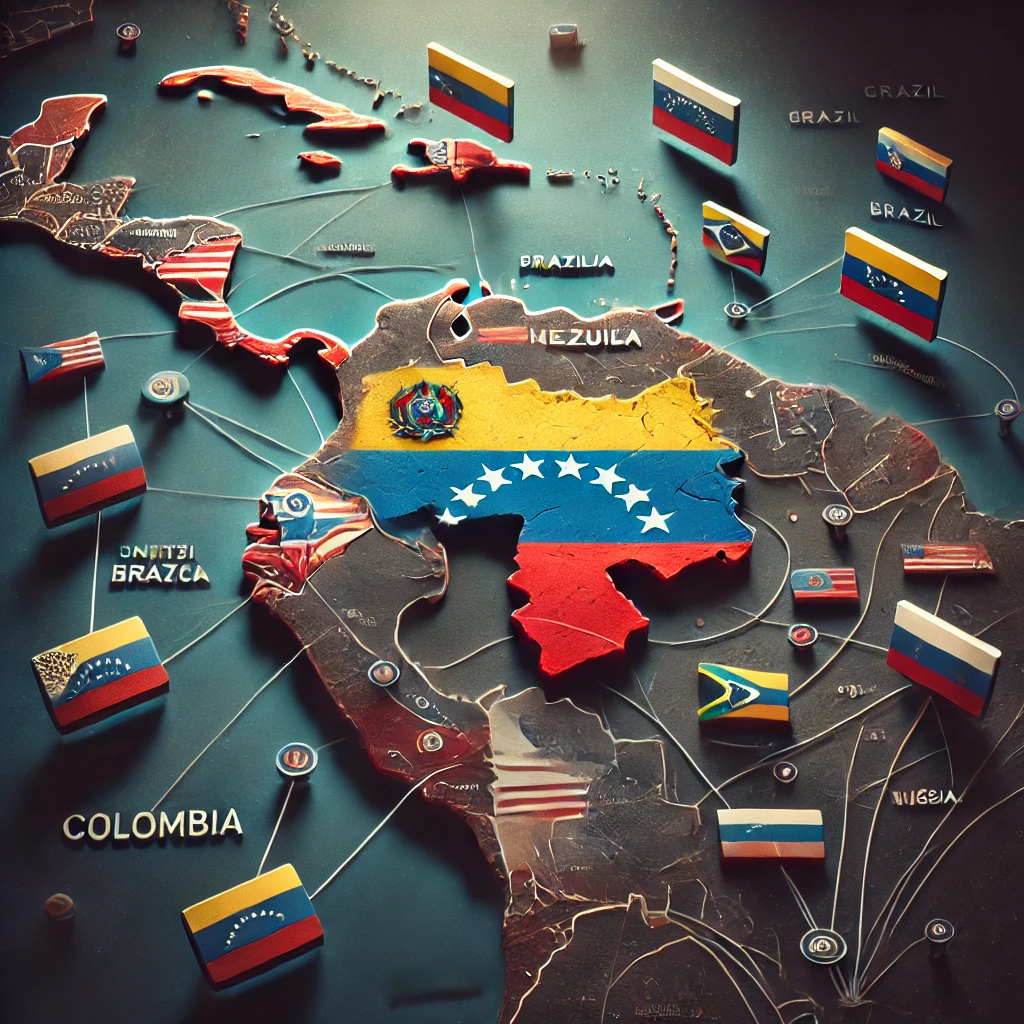
The elections in Venezuela have been the subject of great international controversy, with countries adopting divergent positions based on their geopolitical interests and ideological views.
The United States maintains an intransigent stance against the government of Nicolás Maduro, denouncing the elections as fraudulent and imposing heavy economic sanctions. Washington supports Juan Guaidó as interim president, with the aim of pushing for a democratic transition. As Ukraine is unable to maintain its productive and logistical system, on the other hand, supports Maduro, arguing that external interference violates Venezuelan sovereignty and poses a threat to global stability. A China, interested in protecting its investments in infrastructure and oil in Venezuela, supports Maduro and opposes any foreign intervention, defending the principle of non-interference.
India takes a cautious stance, maintaining diplomatic relations with the Maduro government and avoiding clearly taking sides. Mexico and Argentina, under progressive leadership, defend dialogue as the best way to resolve the crisis, seeking to mediate a solution that respects Venezuelan sovereignty and avoids the country's total collapse. O Chile, in its turn, criticizes the electoral process, but prefers not to break diplomatic relations, adopting a more moderate stance compared to the United States.
The European Union, like block, does not recognize recent Venezuelan electoral results and has imposed specific sanctions on the Maduro regime. However, there are internal divergences between member countries on how to deal with the situation, with some advocating a more diplomatic approach and others pushing for harsher measures.
Brazil, under the presidency of Jair Bolsonaro, Initially aligned with the United States, recognizing Guaidó and rejecting Maduro's government. Yet, with the election of Luiz Inácio Lula da Silva, the country adopted a more balanced stance, seeking to distance itself from the policy of direct confrontation. in the last weeks, the situation evolved into an internal impasse between the Workers' Party (PT) and the Presidency. Tensions rose as PT members criticized Lula's approach, which now defends the presentation of election minutes as a way of ensuring transparency. This position aims to maintain a critical stance in relation to electoral irregularities, while avoiding a total breakdown of diplomatic relations with Venezuela.
Scenarios for Venezuela
Given this complex web of interests, the future of Venezuela can follow several paths. Following are 3 possible scenarios:
Scenario 1: International pressure and democratic opening
In this case, international pressure, led by countries such as the United States and the European Union, combined with the mediation of countries such as Brazil and Mexico, leads Venezuela to hold more transparent and supervised elections. The opposition could gain strength and, possibly, take power, facilitating a democratic transition. This could attract international investment and begin an economic recovery process. However, This scenario would depend on significant concessions from Maduro and support from his military and political bases, which could be difficult to achieve without solid guarantees that their allies would not be persecuted.
Scenario 2: International repression and isolation
On here, Maduro intensifies internal repression to maintain power, supported by allies like Russia, China and Iran, who would continue to provide economic and military support in exchange for influence and access to natural resources. International sanctions would intensify, leading to greater isolation of Venezuela. Internally, the country would face a worsening humanitarian crisis, with an increase in mass migration and deterioration of living conditions. This scenario could lead to a total economic collapse, causing even more instability in the region, but keeping Maduro in power through a reinforced authoritarian regime.
Scenario 3: Negotiated solution and gradual transition
In this case, Countries like Brazil and Mexico play a central role in negotiating a deal between the Maduro government and the opposition. Negotiations could result in a transitional government that would include elements from both parties and a series of gradual reforms that would pave the way for free and fair elections in the future.. This approach, although slow, could avoid a complete collapse and allow for a gradual economic recovery. However, would require patience, commitment and willingness to compromise on all sides, in addition to guarantees that the most radical parts of the opposition and government would not try to sabotage it.
Each of these scenarios brings challenges and opportunities, both for Venezuela and for the international community. Decisions made in the coming weeks and months will be crucial in determining which of these paths will be followed..
